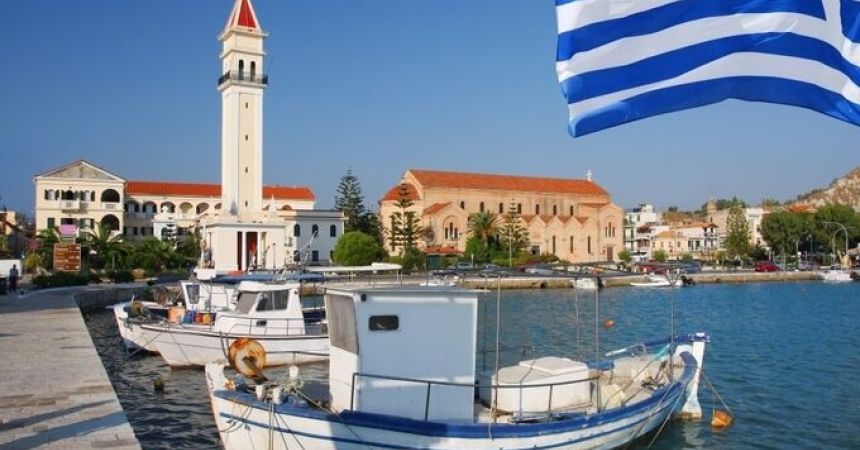
What to Know Before Traveling to Greece
Greece, with its sun-kissed islands, ancient ruins, and rich cultural heritage, is a dream destination for many travelers. From the bustling streets of Athens to the serene landscapes of Santorini, Greece offers a diverse range of experiences. However, to fully enjoy your trip and navigate the nuances of Greek travel, it's essential to be well-prepared. This comprehensive guide provides essential tips for travel to Greece, covering everything from practical advice and cultural etiquette to travel logistics and safety tips.
Introduction Essential Tips for Traveling to Greece
Traveling to Greece requires more than just booking flights and accommodations. Understanding the local customs, climate, and practicalities can significantly enhance your travel experience. This guide will equip you with the knowledge needed to navigate Greece smoothly and make the most of your visit.
Preparing for Your Trip
Travel Documents for a Trip to Greece
Passport and Visa Requirements:
- Ensure your passport is valid for at least six months beyond your intended stay.
- Citizens of EU countries do not require a visa for stays up to 90 days.
- Travelers from other countries may need a visa. Check with the Greek embassy or consulate in your country for specific requirements.
Health Precautions:
- Greece does not have specific vaccinations required for entry. However, routine vaccinations should be up-to-date.
- Carry any personal medications and a copy of your prescription.
Currency and Payments
Currency:
- Greece uses the Euro (€). Be aware of the current exchange rates before traveling.
Currency Exchange:
- Currency exchange is available at banks, exchange bureaus, and airports. Credit and debit cards are widely accepted.
ATMs:
- ATMs are plentiful, and withdrawing cash with a credit or debit card is convenient. Inform your bank of your travel plans to avoid any issues.
Language
Greek Language:
- The official language is Greek. English is widely spoken in tourist areas, but learning a few basic Greek phrases can be helpful and appreciated.
Communication:
- Many Greeks are fluent in English, especially in tourist areas, but knowing some Greek phrases can enrich your experience. Basic greetings and polite expressions are a good start.
Time Zone and Electrical Outlets
Time Zone:
- Greece is in the Eastern European Time (EET) zone, which is 2 hours ahead of Coordinated Universal Time (UTC+2).
Electrical Outlets:
- Greece uses the European standard two-pin plug (Type C and F) with a voltage of 230V and a frequency of 50Hz. Bring a suitable adapter if your devices use a different plug type.
When to Visit Greece
Seasonal Overview
Spring (March to May):
- Mild temperatures and blooming landscapes make spring an ideal time to visit. Tourist crowds are smaller, and weather is pleasant.
Summer (June to August):
- Hot temperatures and peak tourist season. Ideal for beach holidays but expect larger crowds and higher prices.
Autumn (September to November):
- Warm temperatures and fewer tourists. A great time to explore ancient sites and enjoy the Mediterranean climate.
Winter (December to February):
- Cooler temperatures and fewer tourists. Ideal for visiting historical sites and enjoying local festivals.
Festivals and Events
Easter:
- One of the most important holidays in Greece, celebrated with elaborate festivities and traditions.
Athens and Epidaurus Festival:
- A summer festival featuring performances of classical theater, music, and dance.
Ochi Day (October 28):
- A national holiday commemorating Greece’s refusal to surrender to Mussolini’s forces during World War II.
Getting Around Greece
Transportation Options in Greece
Air Travel:
- Greece has several international airports, with Athens (Eleftherios Venizelos) being the largest. Domestic flights connect major islands and cities.
Public Transportation:
- Buses: Extensive bus network serving cities, towns, and rural areas.
- Trains: Operated by Hellenic Train, connecting major cities and regions.
- Metro: Available in Athens, Thessaloniki, and other major cities.
Taxis and Rideshares:
- Taxis are readily available in cities and towns. Rideshare services like Uber operate in major cities.
Car Rental:
- Renting a car offers flexibility for exploring rural areas and islands. Ensure you have an international driving permit if required.
Ferries and Boats:
- Ferries connect the mainland to the Greek islands. Popular routes include Athens to Santorini, Mykonos, and Crete.
Navigating Greek Cities
Athens:
- Explore historic sites such as the Acropolis, Plaka district, and the National Archaeological Museum. The city is well-connected by metro and buses.
Thessaloniki:
- Greece’s second-largest city, known for its vibrant cultural scene, historic sites, and waterfront promenade.
Heraklion:
- The capital of Crete, offering access to ancient ruins like Knossos and beautiful beaches.
Where to Stay in Greece
Accommodation Types
Hotels:
- Ranges from luxury to budget options. Look for reputable hotel chains or boutique hotels.
Vacation Rentals:
- Platforms like Airbnb and Vrbo offer diverse accommodation options, from apartments to villas.
Hostels:
- Budget-friendly options, often with a social atmosphere and opportunities to meet other travelers.
Resorts:
- Especially popular in beach destinations, offering all-inclusive packages and extensive facilities.
Booking Tips in Greece
Book in Advance:
- Popular tourist areas and peak seasons can lead to higher prices and limited availability. Booking early can secure better rates and options.

Read Reviews:
- Check online reviews and ratings to ensure the quality and suitability of your accommodation.
Eating and Drinking in Greece
Greek Cuisine
Traditional Dishes:
- Souvlaki: Grilled meat skewers, often served with pita bread and tzatziki.
- Moussaka: Baked casserole with layers of eggplant, minced meat, and béchamel sauce.
- Spanakopita: Spinach and feta cheese pie wrapped in flaky pastry.
Dining Etiquette:
- Tipping is customary but not mandatory. Rounding up the bill or leaving 5-10% is appreciated.
Drinks and Local Specialties
Greek Wine:
- Greece produces a variety of wines. Try local varieties like Assyrtiko (white) and Agiorgitiko (red).
Ouzo:
- An anise-flavored spirit often enjoyed as an aperitif.
Coffee:
- Greek coffee is strong and traditionally served in small cups. Frappe is a popular iced coffee option.
Cultural Etiquette and Local Customs
Social Etiquette
Greetings:
- A handshake is common, and Greeks may greet close friends with a hug or kiss on both cheeks.
Dress Code:
- Dress modestly when visiting religious sites. Casual clothing is acceptable in most other settings.
Punctuality:
- Greeks are generally relaxed about time. However, it’s polite to arrive on time for formal meetings and appointments.
Customs and Traditions
Hospitality:
- Greek hospitality is renowned. Expect warm welcomes and generous hosts.
Shopping Etiquette:
- Bargaining is common in markets but less so in shops and boutiques.
Safety and Health in Greece
Safety Tips
General Safety:
- Greece is generally safe for travelers. However, stay aware of your surroundings and avoid poorly lit or isolated areas at night.
Emergency Numbers:
- Police: 100
- Ambulance: 166
- Fire Department: 199
Health Precautions:
- Tap water is safe to drink in most areas, but bottled water is available if you prefer.
- Be cautious with street food and ensure proper food hygiene.
Scams and Tourist Traps
Common Scams:
- Be wary of overly aggressive street vendors or individuals offering unsolicited help. Stick to reputable businesses and services.
Tourist Traps:
- Popular tourist sites can be expensive. Research and compare prices for activities and dining options.
Cultural Experiences and Activities
Historical Sites
Athens:
- Visit the Acropolis, Parthenon, and the Ancient Agora. Explore the National Archaeological Museum for a deeper dive into Greek history.
Delphi:
- An ancient sanctuary famous for the Oracle of Delphi, offering stunning views and historical ruins.
Crete:
- Explore the Palace of Knossos and the ancient city of Aptera.
Natural Wonders
Santorini:
- Known for its stunning sunsets, white-washed buildings, and volcanic landscapes.
Meteora:
- Famous for its monasteries perched on towering rock formations, offering breathtaking views and unique cultural experiences.
Lake Plastira:
- A beautiful artificial lake surrounded by mountains, ideal for outdoor activities.
Local Festivals
Panathenaic Festival:
- A historic festival in Athens celebrating ancient Greek culture and sports.
Sani Festival:
- Held in Halkidiki, featuring a variety of music performances and cultural events.
Kassos Festival:
- A local festival in Kassos Island celebrating traditional Greek music, dance, and cuisine.
Shopping and Souvenirs in Greece
What to Buy
Olive Oil:
- Greece is renowned for its high-quality olive oil, a great gift or personal treat.
Handicrafts:
- Look for handmade pottery, jewelry, and textiles.
Local Products:
- Greek honey, herbs, and wines make excellent souvenirs.
Where to Shop
Markets:
- Local markets offer a wide range of products, from fresh produce to crafts.
Shops and Boutiques:
- Explore local shops for unique finds and high-quality goods.
Shopping Malls:
- Major cities have shopping malls with both international and local brands.
Responsible Travel and Etiquette
Environmental Responsibility
Waste Management:
- Follow local guidelines for recycling and waste disposal. Reduce plastic use and opt for reusable items.
Respect Nature:
- Stick to marked trails and avoid disturbing wildlife. Leave natural sites as you found them.
Respecting Local Culture
Cultural Sensitivity:
- Respect local customs and traditions. Be mindful of cultural norms and practices.
Photography:
- Always ask for permission before taking photos of people, especially in rural areas.
A Greek holiday: perfection in every way.
Vacation Packages to Greece is an exciting opportunity to immerse yourself in a country rich with history, culture, and natural beauty. By understanding the practicalities, respecting local customs, and being prepared, you can ensure a memorable and enjoyable experience. Whether you’re exploring ancient ruins, relaxing on beautiful beaches, or savoring delicious Greek cuisine, Greece has something to offer every traveler. Embrace the adventure, and let Greece’s charm captivate you.



